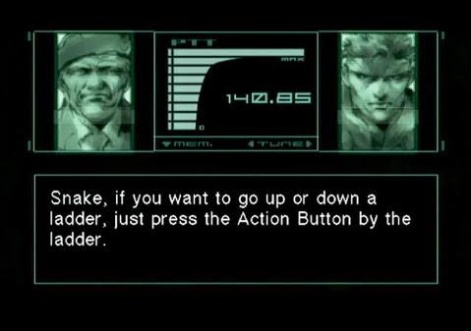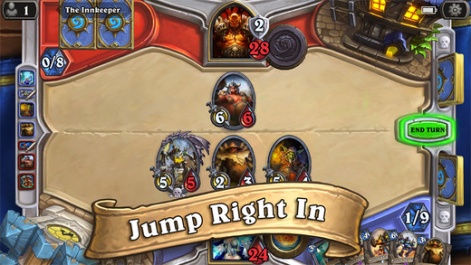At Develop:Brighton 2015, both Neil Young (N3TWORK) and Harry Holmwood (Marvelous) highlighted Gacha, Fusion and Collection as the key F2P monetisation mechanic they thought to be underused by western developers.
Indeed, Young predicted that correctly used in a western environment, they would be the foundation for the first $10 billion game.
With that in mind, we asked our Monetisation Mavens:
- Do you agree that Gacha, Fusion and Collection is this powerful and that it could work as well in a western setting as it has in Japan?

There is a clear difference between underused, and not used that often.
Essentially, I believe it boils down to the F2P and specifically the casual video games industry being much more mature in Japan, Korea, China etc.
With Gacha, Fusion and Collection comes complexity - complexity that often times would scare away your average western commuting time-killer, but I think it's getting there.
I wouldn't necessarily say its the right path, but its the natural path. We get used to something and then we want it to 'be more' than what we had the last time.
The western mass-market needs to be ready for it.Mikkel Faurholm
I do agree that Gacha, Fusion and Collection is very powerful, but the western mass-market needs to be ready for it.
We've seen some great examples of games taking in some of these mechanics - and being successful - but for a large majority of the games, its still for a minority audience.
Games Like Hearthstone and Marvel Heroes are still aimed at a certain crowd and until the majority of casual player get used to a certain level of complexity, Gacha, Fusion and Collection will not see a Puzzle & Dragons-like success in the western markets.

Ben is a 15-year veteran of the games industry - he's worked as a senior executive, studio head, project lead, creative director and game designer at companies like DeNA, EA, Sony and Lionhead.
He started working on traditional games, but has been focussed on the free-to-play business model since 2006 - an extremely long time by western standards. During that time He's worked on a total of ten separate free-to-play games across five different platforms reaching over 50 million users.
These mechanics don't have to be attached to a card battle game.
Someone just needs to find a western-appropriate core game loop to attached this lucrative and under-used meta loop to.
Trouble is, everyone in the west is blindly following either Flappy Bird, Clash of Clans or Candy Crush.
Speaking in more generals terms than just Gacha, luck-based monetization mechanics work very well in the West.
We have these systems in place for almost every of our games and they generate a major share of our revenue.
It just makes sense from many different perspectives:
- Players tend to estimate their chance of winning too high.
- The system itself is engaging as so exciting that they come back for more.
- In contrast to a casino, winning players don't cost much.
- You can design very powerful items but make them rare and add as many as you want.
And the list goes on...
If anyone is interested, some time ago I wrote a short article about the topic.
Collection to me often falls short when the items you collect don't have any personal meaning.Tim Rachor
Fusion is clever as you can create very rare and desirable items as you go up the levels. If you need 2 items per fusion for example a level 5 card is worth 2^4 level 1 cards.
And you create use for older cards if you don't have a selling option for currency.
I'm not an expert on Japanese gaming culture but to me, collection often falls short when the items you collect don't have any personal meaning.
If I collect old dungeon itemsets in World of Warcraft that's because they are connected to a personal memory of the time I was doing that dungeon.
Ok, they also might look cool but it's not that easy to create such meaning in a more casual mobile game. I think there could be great potential if you find a fitting way to monetize on memories in your game. Like photos taken on a ride in a theme park.
What's really great about collection mechanics is that it creates the need of completion. We all want to finish what we've started. And if I got 9 out of 10 cards from that collection. What am I willing to pay for the 10th card? Way more as if it was just any other powerful card.
All in all I would say that there is still a lot of potential for many western games in these regards.
As Ben said they don't have to be connected to a single genre. They work well in most environments if
they are integrated well and with all sorts of ingame items.

Jordan Blackman is a lead designer and producer with over ten years of experience designing, producing, and managing hit content for companies like Zynga, Ubisoft, NovaLogic, & Disney.
Over 80 million people have played games that Jordan worked on as either a producer or designer.
Jordan’s credits include Lead Designer on FrontierVille & CastleVille, Senior Producer and Original Concept on CSI: Crime City (Facebook), Producer on Delta Force: Black Hawk Down, and Writer on Joint Operations: Typhoon Rising.
I agree these mechanics could be brought into western F2P games more often.
Fusing cards and playing virtual slot machines… it's all a bit "gamey," isn't it?Jordan Blackman
Will they be included in the first $10 billion game? Maybe, but I doubt that they won't be the foundation of such a game.
More likely, they'll be the highly monetizing guacamole on the Chipotle burrito that will be the rest of the product.
These mechanics can be challenging to design into a game in a way that makes organic sense for a game's fiction.
Fusing cards and playing virtual slot machines… it's all a bit "gamey," isn't it? This is something western designers find more troubling than their eastern counterparts.
This difference is something that predates mobile. For example, Japanese console games had no problem having NPCs look directly at the screen and tell the player to "Press X to save me!" Meanwhile, Western developers sought to keep things consistent and immersive with a sturdy fourth wall.
But I digress.

We should also be wary of games that lean too heavily on these mechanics.
The game industry thrives on providing new experiences for players, so making these gambling mechanics the centerpiece of our games will tire out the marketplace. Not too mention that games have so much more to offer.
Finally, the Kompu Gacha ban in Japan shows the danger of a game industry that fails to self regulate. And what is Kompu Gacha? Oh yeah, it's gacha meets completing a collection, two of the three mechanics in our topic.

Ben is a 15-year veteran of the games industry - he's worked as a senior executive, studio head, project lead, creative director and game designer at companies like DeNA, EA, Sony and Lionhead.
He started working on traditional games, but has been focussed on the free-to-play business model since 2006 - an extremely long time by western standards. During that time He's worked on a total of ten separate free-to-play games across five different platforms reaching over 50 million users.
Random drops are not gambling mechanics.
Nobody talks about gambling in reference to Diablo, Borderlands, Hearthstone, Top Trumps or Pokemon.

I'd separate out these three mechanics, they don't have to be together in a game. Hearthstone has gacha and collection, but not fusion, for example. Diablo 3 has fusion and gacha but not collection.
And a $10 billion game might already exist anyway. Clash of Clans is 25% of the way there. That has none of these mechanics.

I would suggest that generally, in East vs West mechanic comparisons, Western audiences don't enjoy repeated grind or relying on luck as much as Eastern ones.
So the fusion part of the equation is the one I'd likely see as the weak link when it comes to Western interpretations. In an example of this kind of thinking, Western Blind Box games tend to let players buy specific items if they can't pull them from the gacha (eg Hearthstone), whereas Eastern games don't (e.g. Puzzle & Dragons).
Of course grind and luck are *great* mechanics from an F2P creator's point of view, so the appeal is obvious. And solving for a Western audience will require dealing with these two issues. There are no silver bullets.
Gacha, fusion, and collection already have numerous examples of success in Western games.
It's important to remember these mechanics are just ingredients.Dylan Tredrea
One especially clever product is the incredibly successful McDonalds' Monopoly sweepstakes game. It's a great example of how there's no real issue in the west with gacha. It's just (as always) a matter of implementation.
Plenty of these games are also light on core gameplay and instead the experience is more focused on the metagame. As with any creative direction there are certainly plenty of players that don't like this approach, but a slice of the market clearly does.
Much of the criticism of gacha systems go too far, in my opinion. It's important to remember these mechanics are just ingredients.
What really matters is what you do with them. At a certain point it's akin to saying 'cinnamon sucks' just because you don't like Cinnabon's cinnamon rolls.























